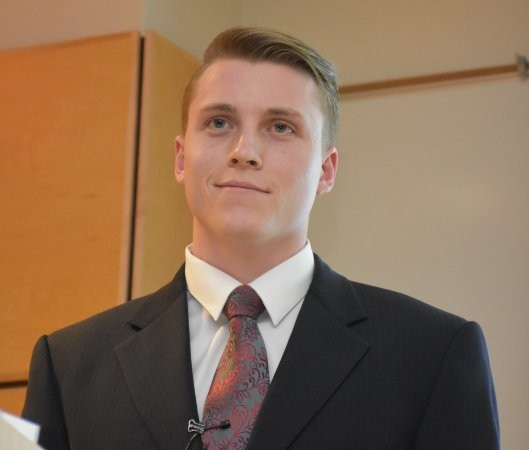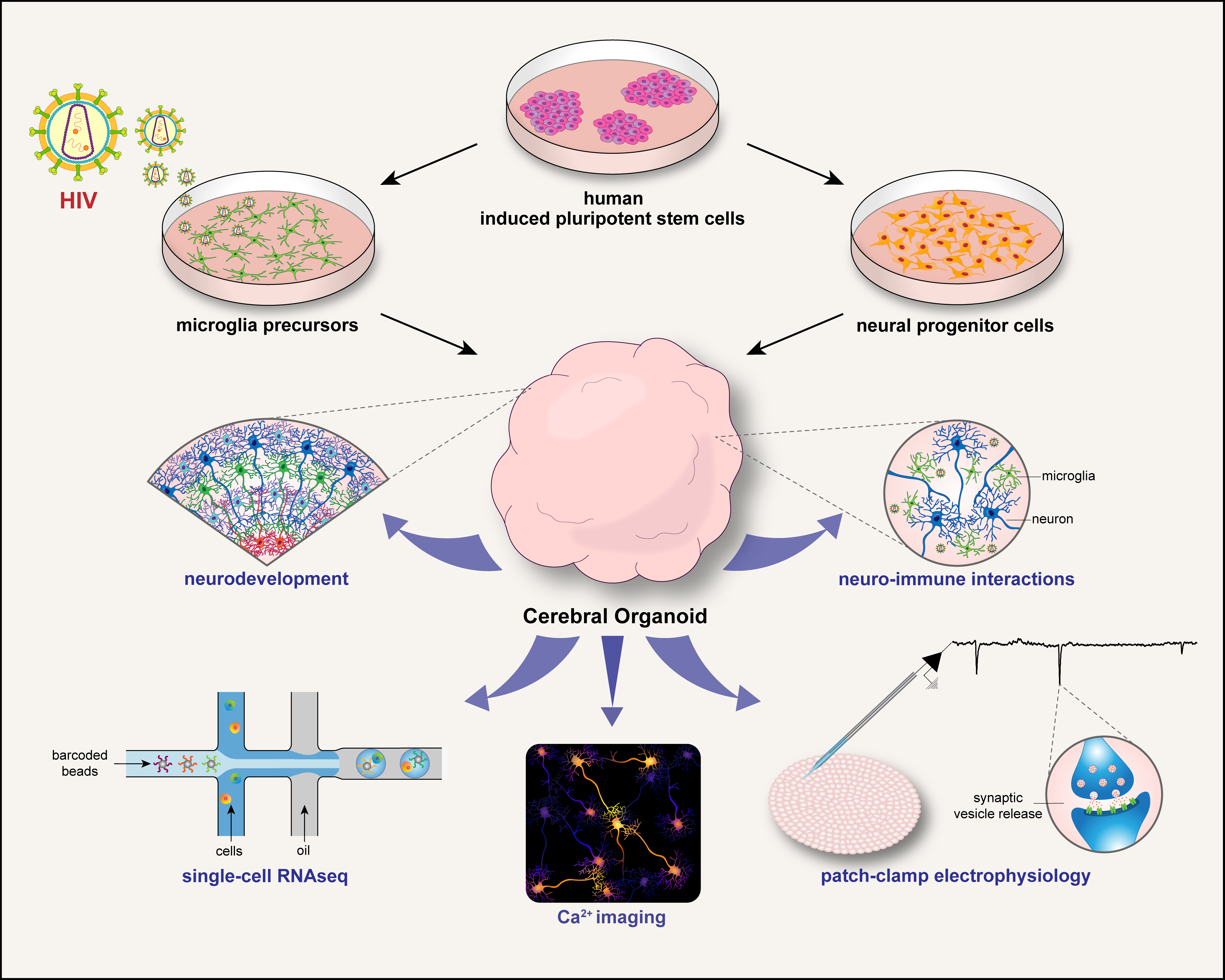
Advisor: Dr. Zhiping Pang and Dr. Peng Jiang
Office: CHI Rm: 3277 and Nelson Labs Rm: B209
andrew.boreland@rutgers.edu
ORCID ID: 0000-0002-1786-3473
Research Interests
Organoids, Stem Cells, Microglia, Neural architecture, Single-cell transcriptomics, Electrophysiology
Research Summary
The human brain is arguably the most complex structure in the known Universe; like space or the deep ocean floor, it is a vast frontier of unknowns. These unknowns have been particularly difficult to explore due to a paucity of human brain tissue for research. Despite progress with animal models, key species differences necessitate amenable human models. Advances in stem cell technologies now allow generation of 3-dimensional (3D) brain organoids that can be assembled with or without microglia derived from human induced pluripotent stem cells (hiPSC). This unique platform mimics human immune, synaptic, and glial interactions in an in vitro 3D environment.
My research focuses on developing this system to examine how these interactions are changed by HIV-infection of microglia, the brains resident immune cells. When an individual contracts HIV, the virus inevitably invades the central nervous system (CNS) where it resides as a viral reservoir unable to be eradicated by current combination antiretroviral therapies (cART), even if the virus is successfully suppressed systemically. Patients harbouring HIV in the CNS will eventually fall victim to HIV-associated neurocognitive disorder (HAND). However, how the virus leads to neuropathogenesis and corresponding neurocognitive symptoms is poorly understood, partly because HIV is unable to infect neurons. By using this HIV-infected organoid model, I plan to characterize the panoply of cytokines and chemokines induced by infection, investigate how these inflammatory signals cause functional alterations in neurons through patch-clamp electrophysiology, and investigate the consequence of microenvironment changes on the genetic landscape via single-cell RNA sequencing. This model will help the efficient development and translation of therapeutics agents targeting HIV within the CNS, with the goal of reducing viral burden and neuropathological sequelae.
Awards & Honors
NIH CTSA 5TL1TR003019-02 NJ ACTS Training Program in Clinical and Translational Science Fellowship, 2020-2021
Gordon J. and Ruth M. Macdonald Foundation Award, 2019
2nd Place Poster: 2019 Rutgers Biotechnology Training Program Symposium, 2019
NIH Rutgers Biotechnology Training Program Fellow 2018-2020
Publications
Robles DA, Boreland AJ, Pang ZP, Zahn JD. A cerebral organoid connectivity apparatus to model neuronal tract circuitry. Micromachines. 2021; 12:1574.
Xu R, Boreland AJ, Li X, Erickson C, Jin M, Atkins C, Pang ZP, Daniels BP, Jiang P. Developing human pluripotent stem cell-based cerebral organoids with a controllable microglia ratio for modeling brain development and pathology. Stem Cell Reports. 2021; 16: 1923-1937. PMCID: PMC8365109.
Liu X, Bibineyshvili Y, Robles DA, Boreland AJ, Margolis DJ, Shreiber DI, Zahn JD. Fabrication of a multilayer implantable cortical microelectrode probe to improve recording potential. J Microelectromech Syst. 2021; 30: 569–581. PMCID: PMC8445332.
Scarnati MS, Boreland AJ, Joel M, Hart RP, Pang ZP. Differential sensitivity of human neurons carrying μ opioid receptor (MOR) N40D variants in response to ethanol. Alcohol. 2020; 87: 97-109. PMCID: PMC7958146.
Xu R, Li, X, Boreland AJ, Posyton A, Kwan K, Hart RP, Jiang P. Human iPSC-derived mature microglia retain their identity and functionally integrate in the chimeric mouse brain. Nat Commun. 2020; 11: 1577. PMCID: PMC7101330.
Representative Graduate Courses Taken
Graduate Writing Program
Fundamentals of Molecular Biosciences
Experimental Methods in Molecular Biosciences
Optical Microscopy in Cell and Developmental Biology
Innovation and Entrepreneurship for Science and Technology
Interdisciplinary Biostatistics Research Training for Molecular and Cellular Sciences: Enhancing Rigor and Reproducibility
Leadership & Outreach
Judge, Nokia Bell Labs North Jersey Regional Science Fair, 2019
Co-Chair, NIH Rutgers Biotechnology Training Program Advisory Board, 2019
Mentor, Rutgers Molecular Biosciences Peer Mentoring Program, 2018
Member, Rutgers Seeding Labs, 2018-19


